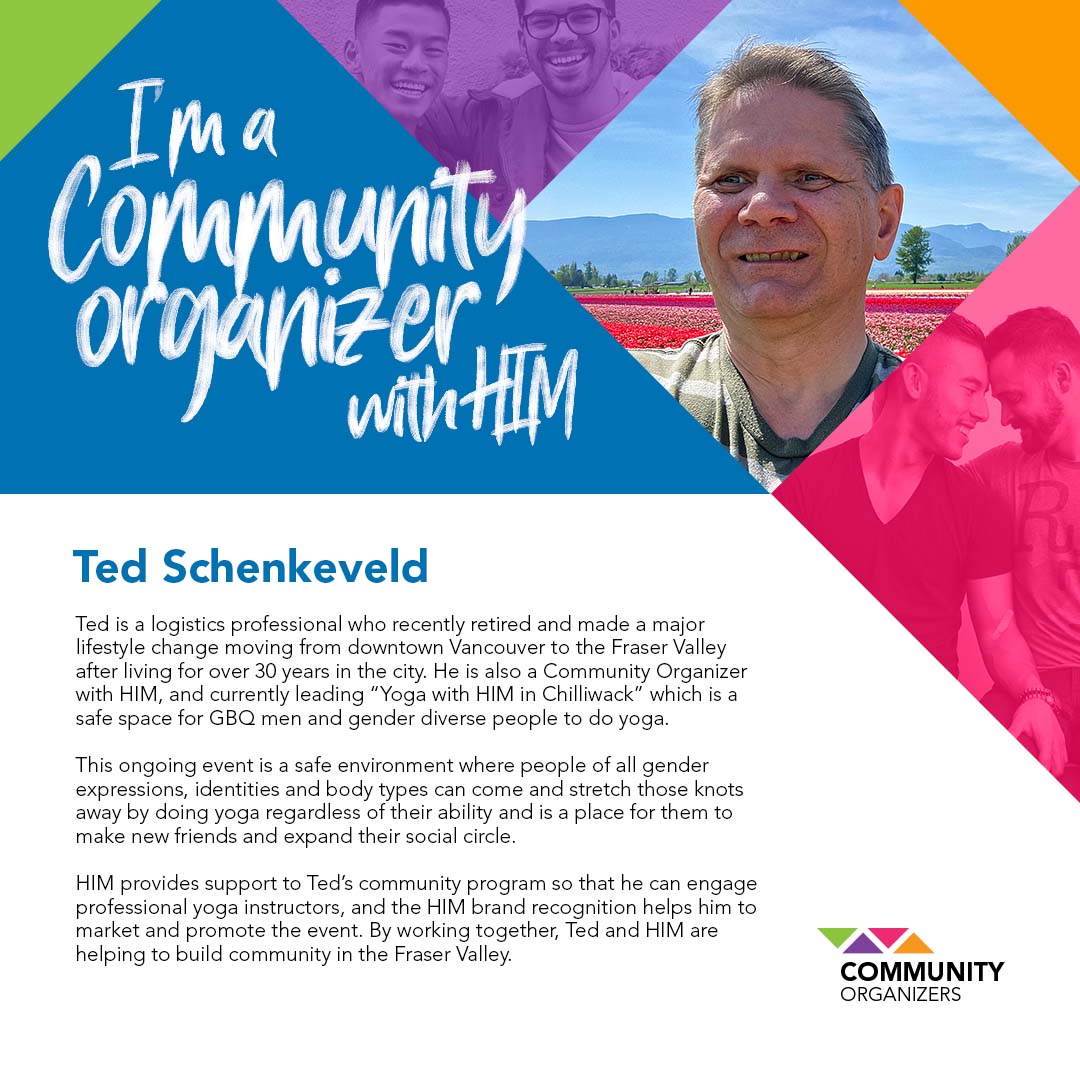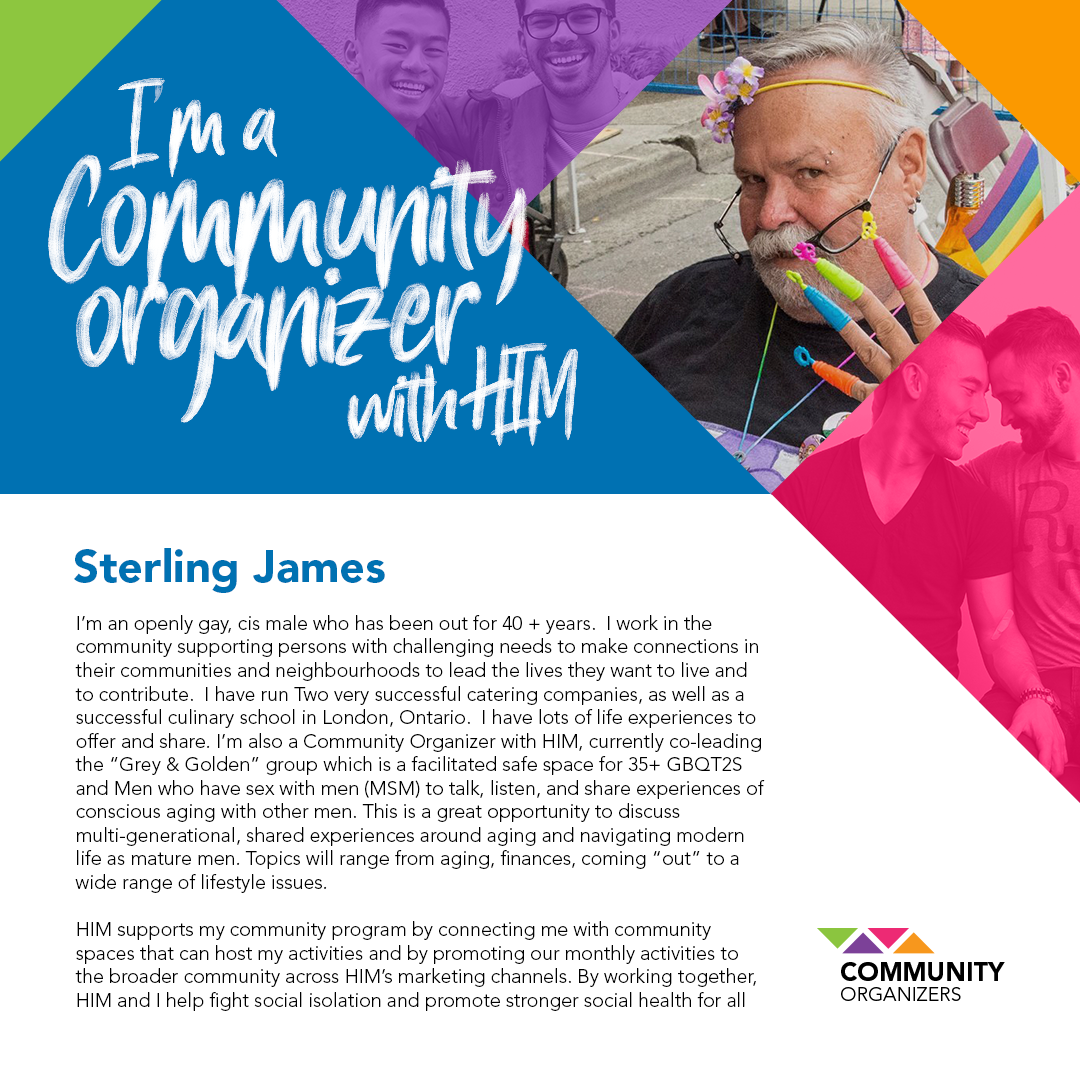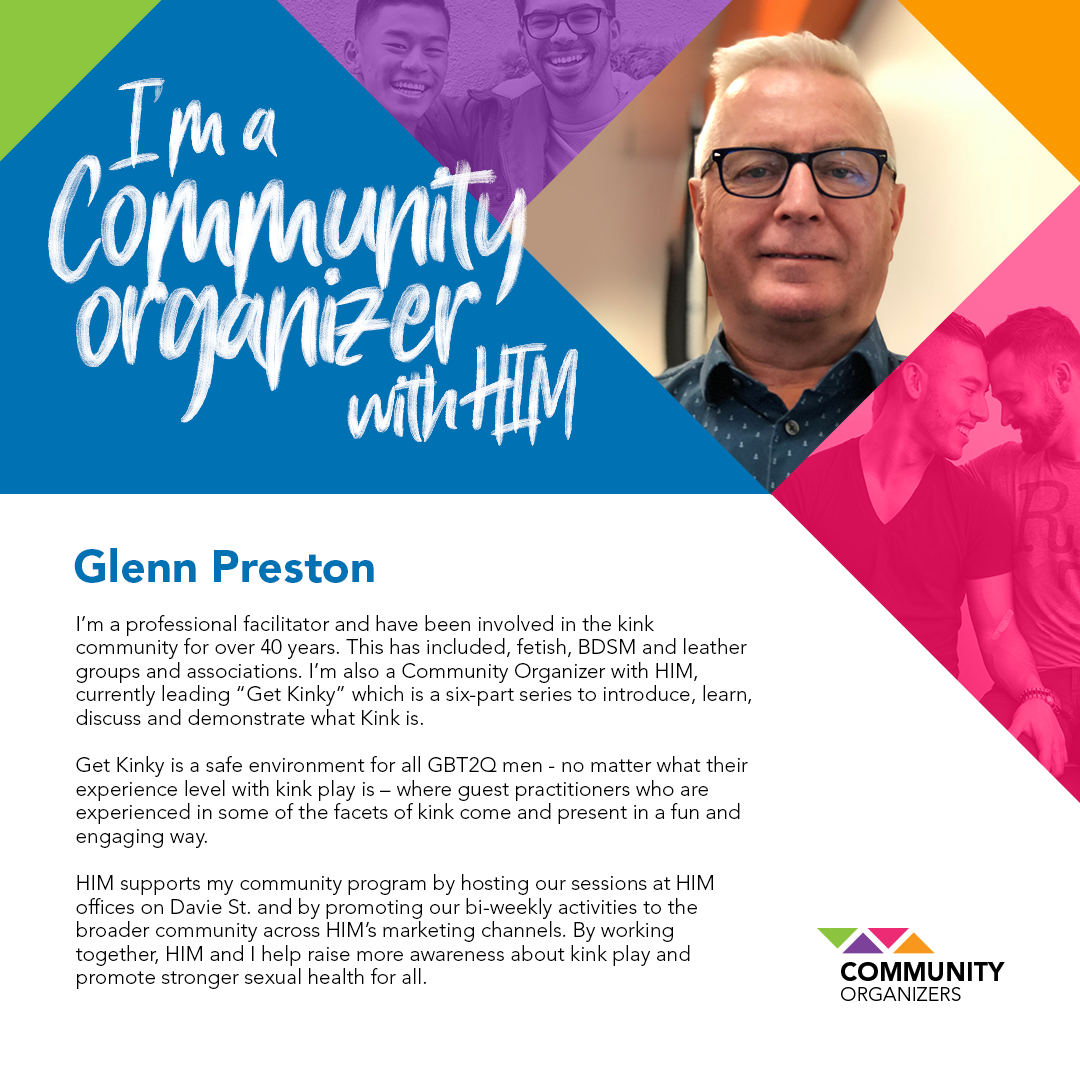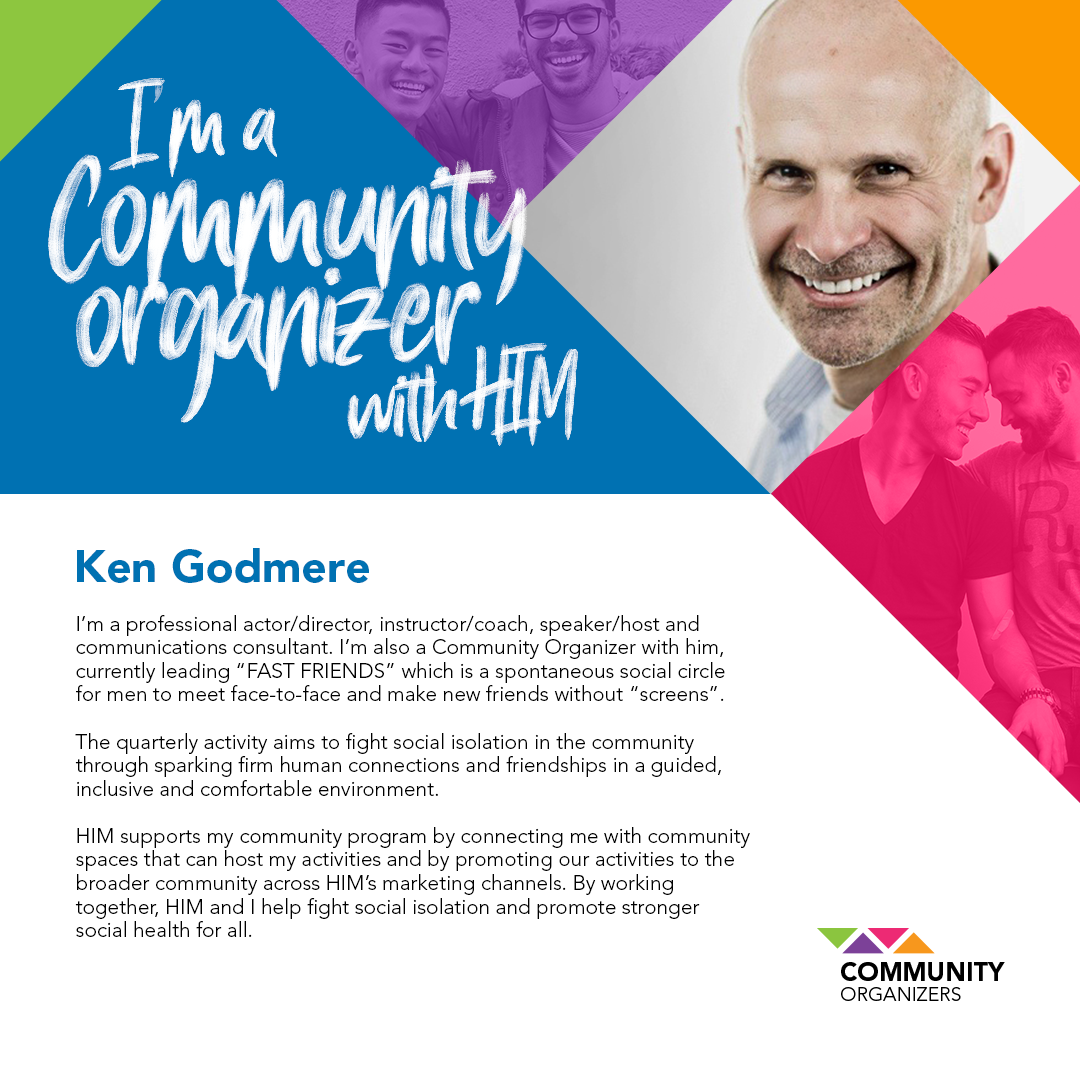
Employment Opportunities
Thank you for your interest in joining the Health Initiative for Men team.
Current Job Opportunities
Subscribe to our newsletter to receive alerts about new job opportunities via email.
Working at HIM is fun, rewarding, challenging and an incredible opportunity to learn from your peers and your community. We do not need you to have a formal education and we will work with you to learn about your ideas, perspectives, and experience. If you are passionate about the health and well-being of gay, bi, queer men and gender diverse people and have experience you want to share then we want you to apply.
Who is included?
HIM is committed to employment equity and prioritizes hiring people from racialized and marginalized groups including: trans and gender diverse people, Indigenous/Two-Spirit people, people of colour, and people with disabilities.
Our staff compliment is currently a group of gay, bi, queer men and gender diverse people.
HIM considers applications from all people who identify with the work that we do regardless of gender or sexual orientation.
Because HIM is a peer led organization and so the people most likely to be hired are those who share experiences with our participants. Our participants are:
- Gay, bi, and queer men (trans and cis)
- People who are less “out”
- Gender diverse people
- HIV + and HIV –
- Non-binary people
- Sex workers
- Women (trans and cis)
- Questioning and/or in transition
If you are comfortable, applicants are encouraged to self-identify in their cover letter or in communication with the hiring committee. We can assure your confidentiality if you choose to disclose anything personal.
Policies at HIM are designed by the staff and volunteers and are informed by deep investigation into the needs of our more marginalised and/or racialized staff members. For example:
- HIM has a strict zero-tolerance policy for racism, bullying, and violence.
- HIM does not require that you are “out of the closet” to apply. We will work with successful applicants to determine a plan for your privacy.
- Unique policies and practices are in place to protect “dead names” and/or “legal names” and uphold the use of the staff’s name.
- Misgendering and use of “dead names” is included in HIM’s harassment policy.
- Unique benefits are offered for trans and gender diverse staff who encounter medical costs that are not covered by other sources.
- We provide a set of fundamental principles (created by staff) upon which all HIM staff build their work and evaluate their performance. It is a framework that enable us to self-govern and hold each other accountable to the performance indicators and behaviours we have collectively agreed upon to be essential for the organization to deliver on our promises to our communities.
- Clinical supervision and/or support from chosen Elders is provided at HIM at no cost to staff.
We have created this code of conduct as part of our strategy to protect all our diverse participants from violence, exclusion, and unfair treatment. These are the behaviours we all commit to avoid when participating in any HIM program, or in any HIM space.
To maintain safety, anyone involved with HIM will refrain from:
- Disclosing confidential information about another person (e.g. HIV status, trans experience, sex work experience)
- Bullying and harassment in any form.
- Giving unwanted sexual attention or participating in sexual harassment.
- Behaving in a way that could be interpreted as racist, cruel, judgemental, or violent towards people of colour, Indigenous people, men, and women (cis & trans), gender diverse people, Two Spirit people, sex workers, bisexual people, asexual people, new-comers, immigrants, and people whose first language is not English, or anybody else.
- Breaching the privacy of volunteers, staff, or other participants.
- Uttering threats of any kind (not exclusive to physical violence)
- Any violence of any kind
- Policing (e.g., asking inappropriate questions, investigating, and blocking) anyone for any reason at any time.
Engaging in any of the following behaviours will be grounds for discipline, termination (firing), and our refusal to provide support and programming to you in the future.
If you are refused service there may opportunities for reconciliation, but these instances would occur only with strict conditions and required learning.






